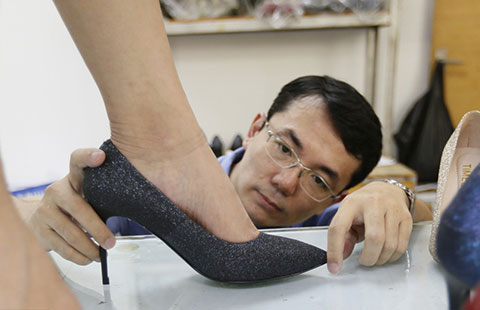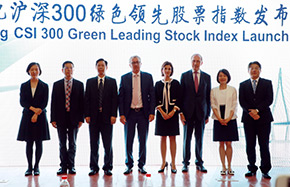Industries see profits jump 24%
Officials: Result shows effectiveness of measures like overcapacity cuts
The profits of China's industrial firms registered the fastest growth in four years in August thanks to rising product prices and falling costs, the National Bureau of Statistics said on Wednesday. Analysts said the country's industrial profits may continue to grow at a stable pace as demand rises.Profits jumped 24 percent in August year-on-year to 672 billion yuan ($101.3 billion), compared with 16.5 percent in July, the NBS said.
It is the biggest single monthly percentage growth since August 2013, without considering the combined profit growth in January and February of 31.5 percent. The NBS does not release single month growth rates for those two months because economic activities are disrupted by the long Spring Festival holiday, which starts either in January or February.
Rising prices for industrial products, especially in sectors such as oil, steel and electronics, and falling corporate costs contributed to the high growth rates of industrial profits in August, He Ping, a senior official of the NBS, said in a statement on the bureau's website.
China's reduction of excessive production capacity and the environmental protection measures put in place since last year have led to reduced production and rising prices for some industrial products. Meanwhile, costs have dropped, accounting for 92.74 percent of the main business revenues of industrial enterprises on average in August, compared with 93.4 percent a year ago, according to the NBS.
"The (August) figures are really positive-they show China's efforts to cut down on overcapacity is working well," said Iris Pang, Greater China economist at ING bank in Hong Kong, according to Reuters.
As China's controls on real estate prices continue, some analysts are concerned that demand for many industrial products may soften, which would affect the sustainability of industrial profit growth.
Gao Ming, an analyst with China Merchants Bank, said such concerns are not well founded. "Demand has become less dependent on investment and real estate and instead more reliant on consumption and exports," he said. As exports and consumption continue to improve, industrial enterprises will benefit and maintain a stable growth that fluctuates around 15-20 percent in the middle term, Gao said.
China's rising income levels will help expand demand for products in sectors such as housing, transportation, health and entertainment, said Ren Zeping, chief economist of Founder Securities. Meanwhile, economies of more countries and regions, such as Europe, are recovering, which will benefit China's exports, he said.
"We are bullish on China's growth," Pang said. "It's not just capacity cuts that are boosting prices. Demand is quite strong, too."
For the first eight months of this year combined, industrial firms saw profits rise to 4.92 trillion yuan, up by 21.6 percent year-on-year, compared with 21.2 percent in the January-July period, the NBS said.



















